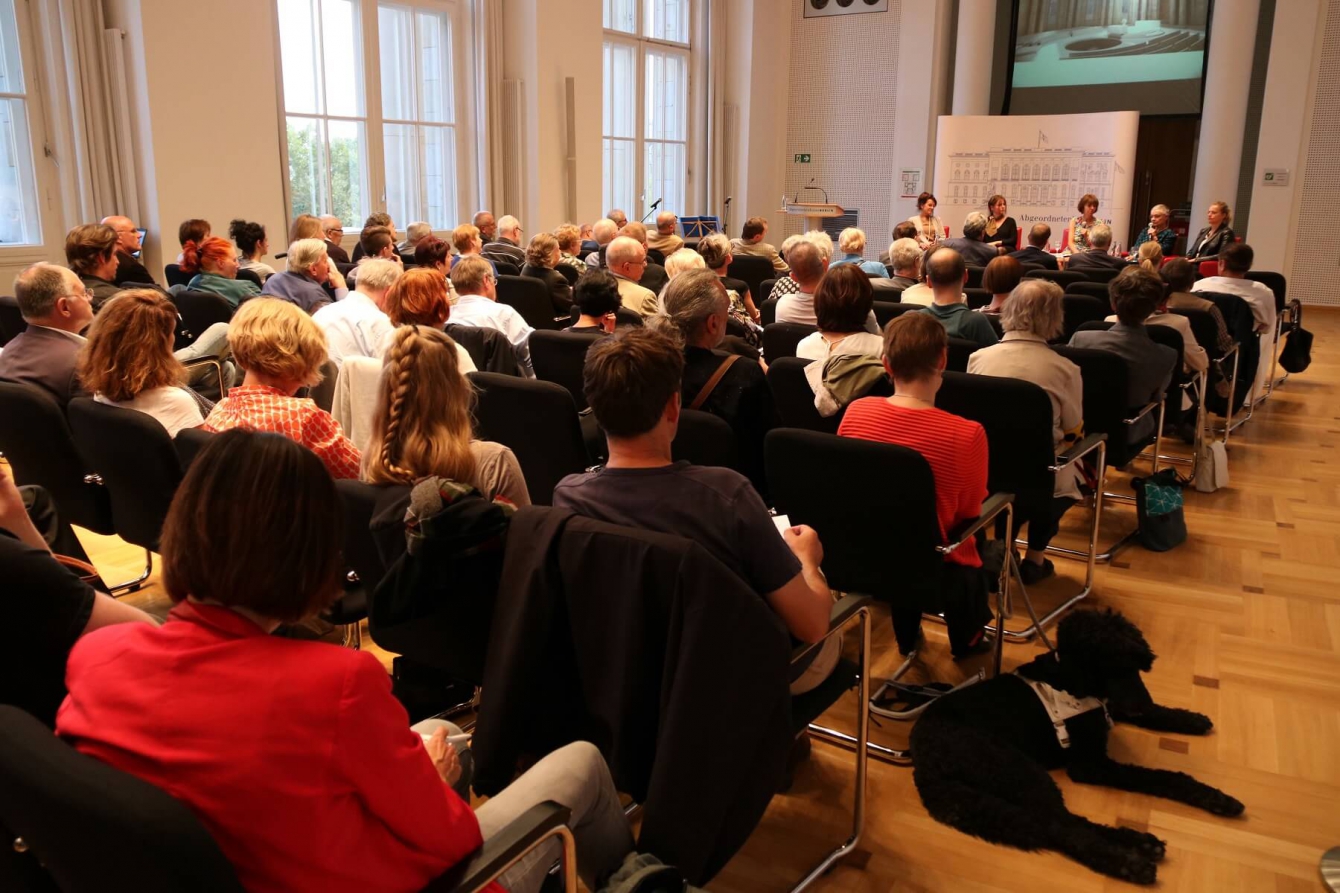Ceremony for Cultural Heritage and Barrier-free Accessibility project held in Berlin
The project Cultural Heritage and Barrier-free Accessibility, Berlin, received an EU Prize for Cultural Heritage / Europa Nostra Award 2017 during a public event held on 5 September at the House of Representatives of Berlin. Some 120 people attended the ceremony for this exceptional heritage achievement from Germany.
High-level representatives from Europa Nostra, representatives from Berlin’s Parliament and several members from Berlin’s Senate Departments joined members from the Technical University and the Monument Authority of Berlin to address a public audience in honour of the achievement. A panel discussion with members from the project group and the Representative from the German Federal Government for People with Disabilities, Verena Bentele, and moderated by the distinguished Berlin journalist Sigrid Hoff, was central to the event. The discussion focused on the enormous challenge of combining the conservation of cultural heritage with the necessity to achieve accessibility for all, in an aesthetic and ethical way. This project convincingly demonstrates that accessibility and conservation are not contradictory and can be achieved harmoniously.

Photo: Courtesy of House of Representatives of Berlin
The local ceremony reached its climax with the official opening of the exhibition in the lobby of Berlin’s Parliament building, which can be visited until the 26 September. The opening ceremony was accompanied by a short and enthusiastic contribution by Dr. Rupert Graf Strachwitz who represented Europa Nostra. He explained the importance and strategy of the EU Prize for Cultural Heritage / Europa Nostra Awards to the wider public, commended the project especially as a cooperation project between different partners and called for German entries to the EU Prize for Cultural Heritage / Europa Nostra Awards 2018. The European Heritage Awards Ceremony 2018 will take place in Berlin in June.
Cultural Heritage and Barrier-free Accessibility is a collaborative project between the Senate Department for Urban Development and the Environment, the Berlin Monument Authority and the Department of Model+Design at the Technical University of Berlin. It aims to raise awareness of issues related to accessibility to a wider public, monument conservators and students. The project sets out to promote an understanding of the challenges involved and to encourage innovative solutions.
Using three outstanding listed monuments in Berlin, students of architecture analysed monument protection objectives and developed fresh ideas and solutions that respect the original fabric of each site. The sites represent three distinct periods of architecture: the baroque St. Hedwig’s Cathedral, the historic Alte Stadthaus and the Neue Nationalgalerie, a famous example of modern architecture. The projects therefore represent an illustrative and relevant cross section of European architecture.
The project has inspired some innovative proposals that have been created using architectural models and imagery. In addition to their research, the group extended their impact beyond planners, designers and architects by creating a touring exhibition that enables a broader audience to understand the significance of the project.
“Along with the individual projects which helped to overcome barriers to accessibility, this collaboration between the areas of barrier-free building/design-for-all and monument protection have developed effective guidelines for planners, showing that this is not just theoretical information but applied information”, stated the Awards’ jury.
The jury highlighted that “the cooperation between government stakeholders, companies and universities to promote this information is exemplary. It shows that the project has been successful in sensitising important groups to the link between accessibility and key sites. The dissemination of the project with a touring exhibition and publication is also evidently well planned and effective in communicating the results of the study; it has made this more attractive and is compelling evidence of the power of design for all”.
Berlin’s Parliament building, the former “Preußischer Landtag”, is itself an important heritage site. It was built at the end of the 19th century and was severely damaged during the Second World War. The building was reconstructed and re-opened in 1993.






